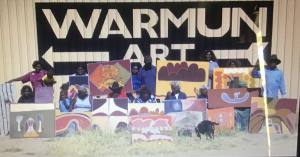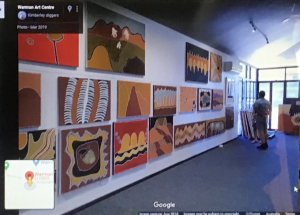Sorry Day has become part of the calendar of commemorations that challenge us to reflect on our colonial history, as well as our present-day attitudes to our Indigenous brothers and sisters.
The formal National Apology given by then Prime Minister Kevin Rudd on 13 February 2008, brought a great sense of catharsis, relief, satisfaction, as though at last, the wrongs of the past were being exposed and confessed. As I look back on the You Tube video of that day on 13 February 2008, I am moved to tears because of the tears flowing on the faces of the Indigenous people, gathered in and outside Parliament.
 Part of our ongoing atonement is the observance of National Sorry Day on 26 May each year. This day was inaugurated in 1998, one year after the tabling of a report about the removals of Aboriginal and Torres Strait children from their families.
Part of our ongoing atonement is the observance of National Sorry Day on 26 May each year. This day was inaugurated in 1998, one year after the tabling of a report about the removals of Aboriginal and Torres Strait children from their families.
As well as being a day of repentance for the cruel injustices of the past, it is a day that highlights some of the wonderful achievements of Aboriginal people in numerous fields of endeavour, The Arts, Music, Dance, Poetry, Theatre, Comedy, Law, Education, Medicine, Health, Literature, Painting, Traditional Languages, Bush Knowledge, Care of Land.
In some circumstances of our everyday lives, the word ‘sorry’ is not easily said, but once it is uttered with sincerity, a way is open for reconciliation, for a more genuine encounter with the other, for ongoing acceptance of mutual shortcomings. To say sorry is to trust oneself and one’s story to the other’s understanding. The genuine encounters of each day in the flow of what happens, leave space for people to grow and accept one another’s limitations. Reconciliation is happening in this gradual and sometimes painful way.
As I reflect with Sisters who work closely with Aboriginal people in remote communities and in urban parishes and settings, I hear them attest to this honesty and mutuality in their relationships. Genuine appreciation of one another, being sorry and saying sorry weave through the ups and downs of everyday encounters. This is reconciliation in the everyday; part of being immersed in ’the smell of the sheep’. It happens on the verandahs, in the Community, the classrooms, the roads, on the bush trips, in the office, the shop, the Art Centre, in times of death, grief and loss, imprisonment and release, resolving conflict, in the talking circle, sitting around corroborees, songs and stories, women’s and men’s business shared and honoured.
 Specifically, targeted programmes can be very beneficial in healing the traumas, and consequent violent behavior, carried from the cruel practices inflicted on past generations. ‘Healing the Cause of Violence Programme’ organised by Sr Alma Cabassi, for the people of Halls Creek and Balgo, is one such programme. This has been run with the support of small grants from Mary MacKillop Today and currently a significant grant from The West Australian Police Force. The sessions are conducted by an experienced psychologist, who presents learnings that help people understand the cause of their reactions and violent behaviours. This programme suits Aboriginal learning styles, Sr Alma says, as it includes illustrations and stories.
Specifically, targeted programmes can be very beneficial in healing the traumas, and consequent violent behavior, carried from the cruel practices inflicted on past generations. ‘Healing the Cause of Violence Programme’ organised by Sr Alma Cabassi, for the people of Halls Creek and Balgo, is one such programme. This has been run with the support of small grants from Mary MacKillop Today and currently a significant grant from The West Australian Police Force. The sessions are conducted by an experienced psychologist, who presents learnings that help people understand the cause of their reactions and violent behaviours. This programme suits Aboriginal learning styles, Sr Alma says, as it includes illustrations and stories.
Please continue reading below:
Read the entire article here (PDF)
Margaret Keane rsj
